
Between Fidelio and Der Freischutz there was “Romantische Oper,” a type of musical drama descended from medieval mystery plays in which ghosts, gnomes and other “invisibles” get entangled in the lives of unsuspecting people. The stories tend to end happily, though not without some heavy-handed moralizing about the human condition.
One character who keeps showing up in these affairs is the mountain spirit Rubezahl, a crotchety type with the power to hurl lightning bolts, alter his appearance and generally wreak havoc on all who rub him the wrong way. The imposing trickster appears in no less than a half dozen operas and singspiels written before 1825 and drives the plot of Franz Ignaz Danzi’s Der Berggeist, a sturdy specimen of the era recently unearthed by the German conductor Frieder Bernius and recorded on the Carus label during last year’s Stuttgart Baroque Festival.
Danzi manages to epitomize some of the best and worst qualities of the genre. Known chiefly for writing some fine wind quintets and for mentoring Carl Maria von Weber, he was skilled at developing large-scale stage scenes and creating beguiling and innovative tonal effects. He was also in thrall to the past, obsessing about the “pure melodies” of Haydn and Mozart while trashing contemporary music as “the route to the madhouse.” The booklet for the recording notes that as early as 1812, the Allgemeine musikalische Zeitung was criticizing Danzi for his crankiness.
His 78-minute two-acter is nonetheless striking for its variety of musical forms. There are strophic songs, recitatives and arias, extended through-composed ensembles, alternating choirs of spirits and mortals and orchestral interludes that comment on the action in a manner foreshadowing Der Freischutz and Euryanthe.
The plot revolves around Rubezahl’s search for a “pure, heroic virgin” needed to awake his queen, the mermaid Erli, who’s been put in a hundred-year sleep as punishment for his ruthless behavior. He finds his victim in Anne, a village girl who finds legends of mountain spirits a lot of bunk. The opera’s supernatural touches, such as a ghostly form making dire warnings during a thunderstorm, are not nearly as evocative as what Weber would soon produce. More interesting is the spirit king’s emotional arc: the way he envies the ephemeral nature of human life and finds himself sharing mortals’ desire for love and happiness.
The most musically striking passages comes toward the opera’s end, after Anne’s purity breaks the spell that enslaves Erli. After an orchestral interlude and a reunion of the mortals the concluding chorus describes humans wandering blindly through life’s dark waves and praises an “unknown power” that people can trust. The score is redolent of late Mozart with more chromaticism, lively orchestration and pleasant, if not always memorable, melodies.
This release joins Bernius’ other “opera recoveries,” as Carus puts it, including Schubert’s Sakontala, Johann Rudolph Zumsteeg’s Die Geisterinsel and Justin Heinrich Knecht’s Die Aeolsharfe. The excellent Kammerchor and original instrument Hofkapelle Stuttgart deliver a committed yet wonderfully unforced reading, injecting a great deal of personality into Danzi’s sometimes foursquare phrases. The choristers’ individual vocal colorings are especially effective set against the accompaniment of winds in moments like the gnomes’ Act 2 chorus “Zage night.” The orchestra is well-balanced and contributes a glowing account of the brief musical interlude portraying the awakening Erli.
As Anne, soprano Sarah Wegener shows a skillful sense of pacing and drama in the nearly eight-minute Act 1 tour-de-force “So war’s gemeint,” in which she promises eternal virginity. Her ample yet flexible voice shifts smoothly between recitative, andante and allegro sections in a committed performance that never trends toward exaggeration.
Tenor Colin Balzer is similarly tasteful and assured as Rubezahl, with a warm lower range and a shining top that sounds well-suited for Bach and other Baroque masters. Baritone Daniel Ochoa and mezzo Sophie Harmsen are upright and honorable as Jacob Landenhag and his wife, Marthe, the parents of Anne. Danzi contrasts the principled bucolic characters with scheming otherworldly figures, such as the gnomes Pux and Url, energetically sung by Patrick Pobenschin and Robert Buckland.
Delivering an authoritative account of such unfamiliar music is no easy task. Bernius’ account was involving enough to make me want to hear what the work sounds like on modern instruments, free of some of the intonation and balance issues associated with early winds and strings. Regardless, it seems that this little-explored corner of the repertory is emerging as a new province of early music specialists, who are doing a service rummaging through libraries and archives for other musical missing links.














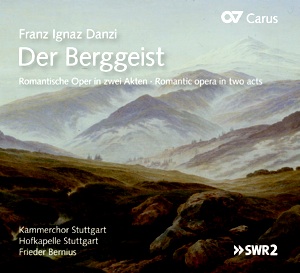
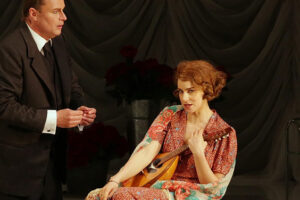
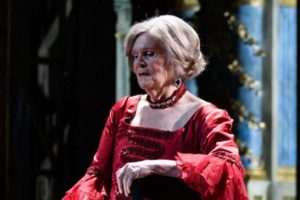
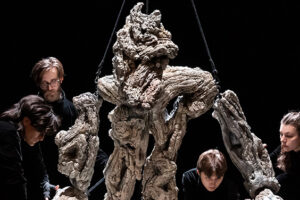
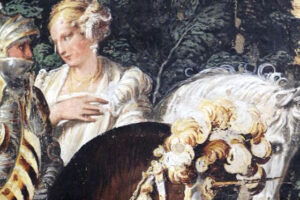






Comments